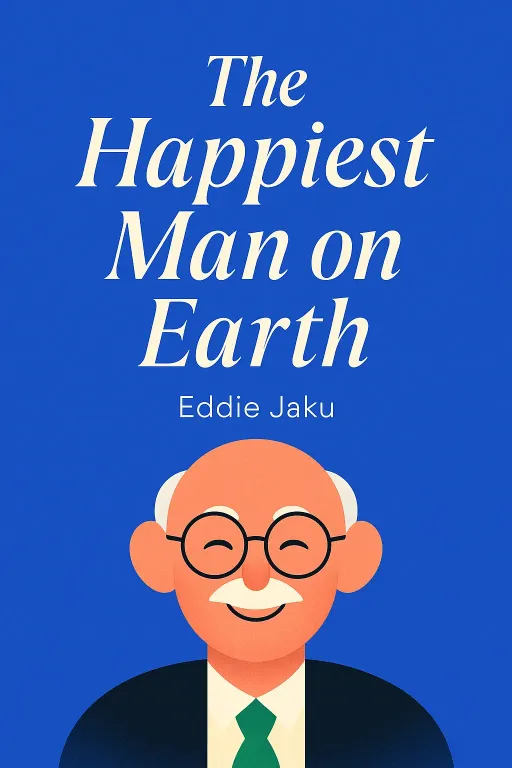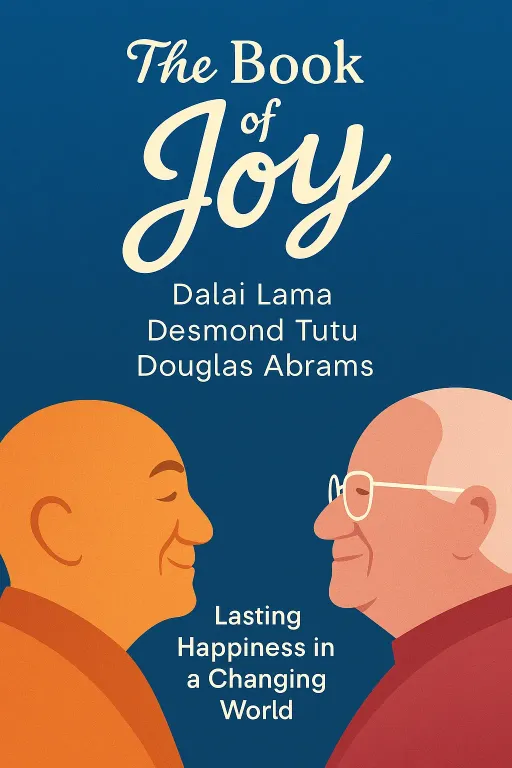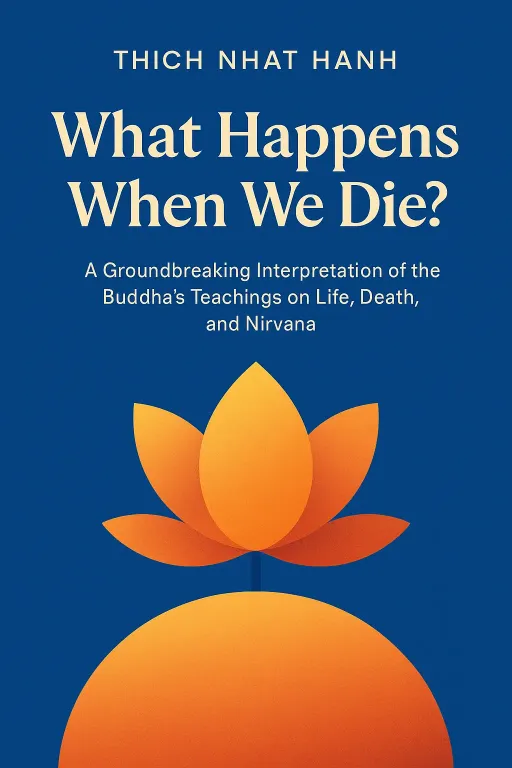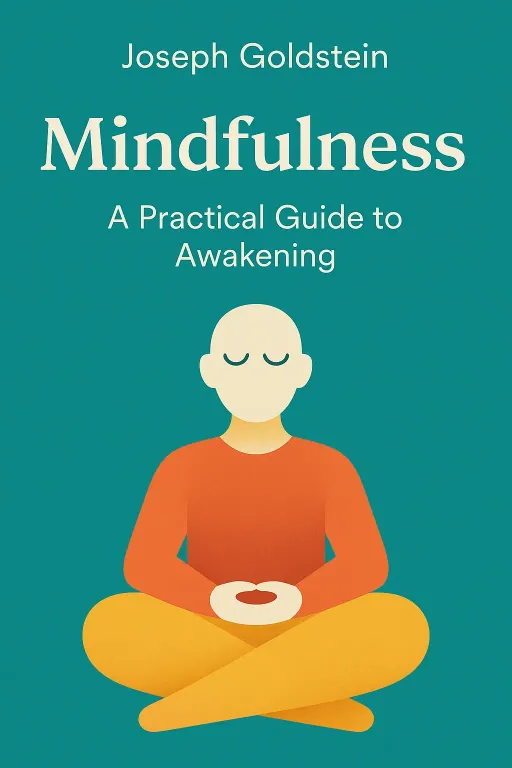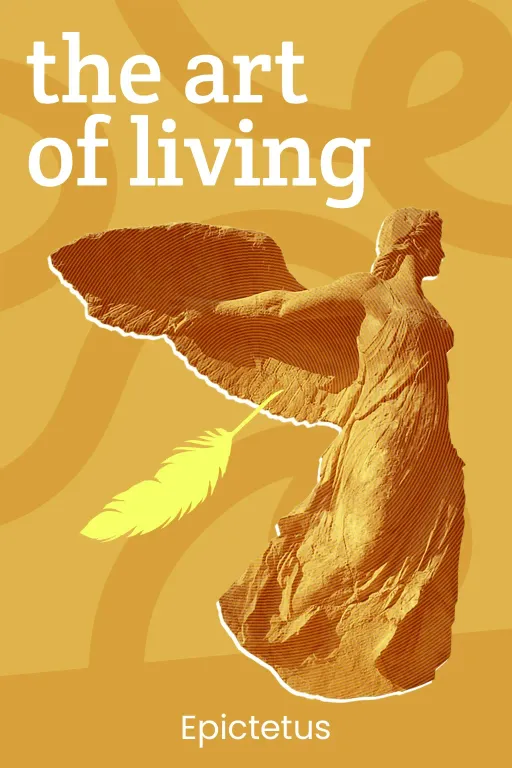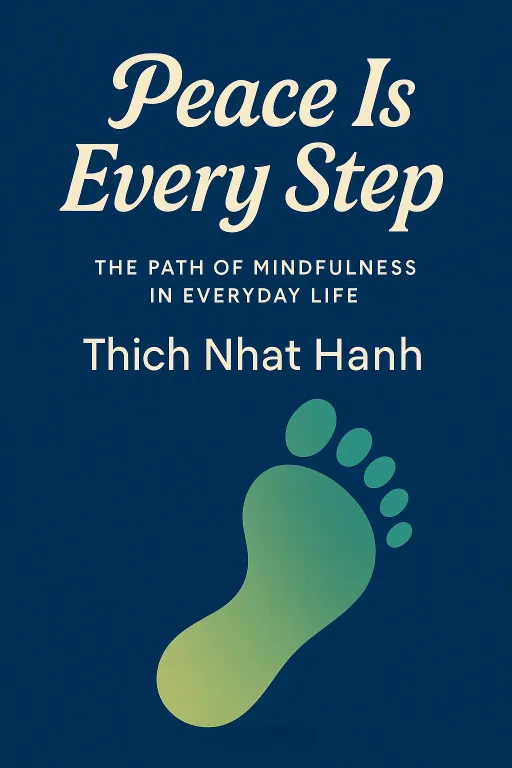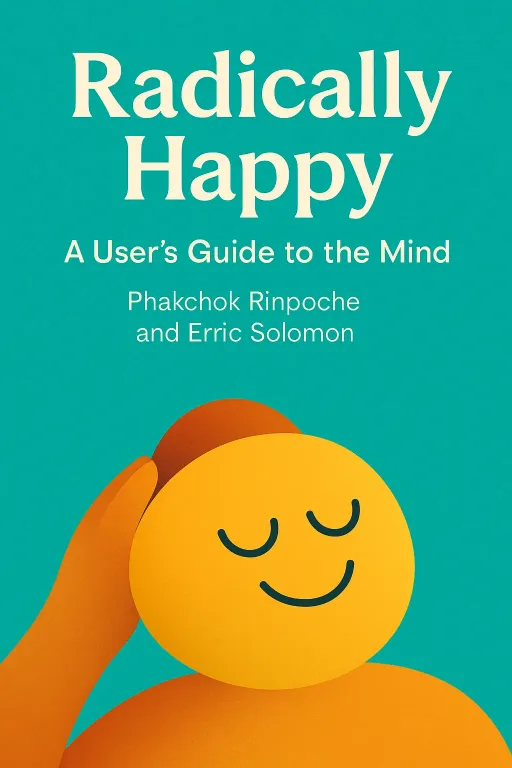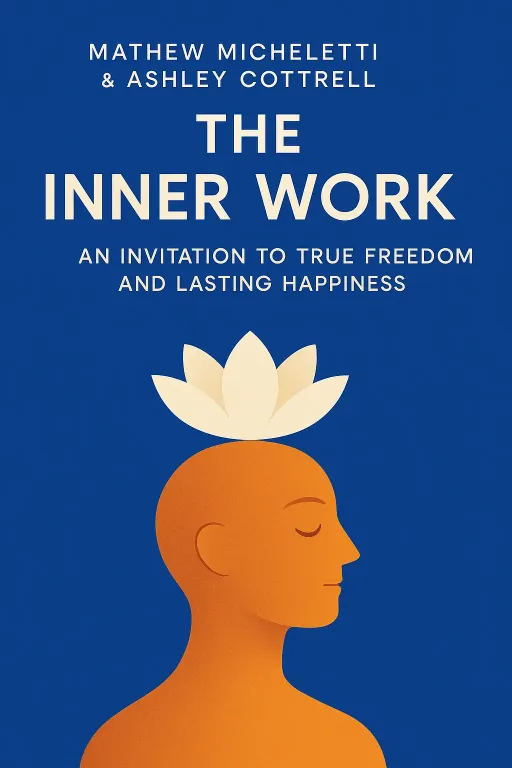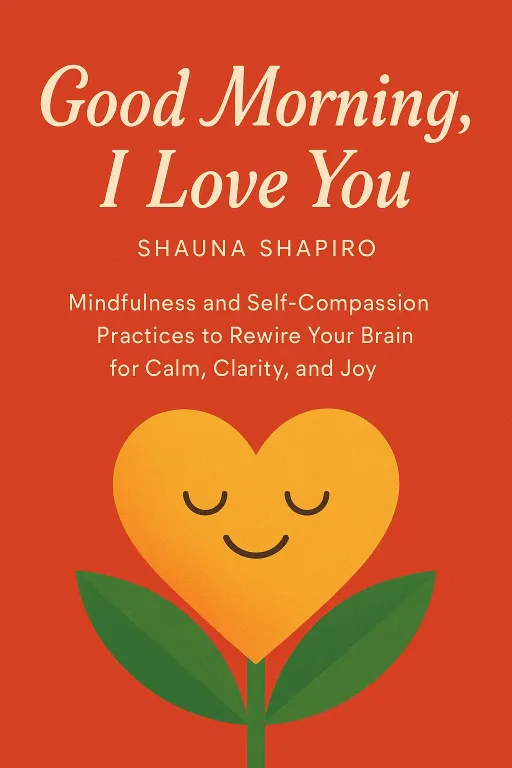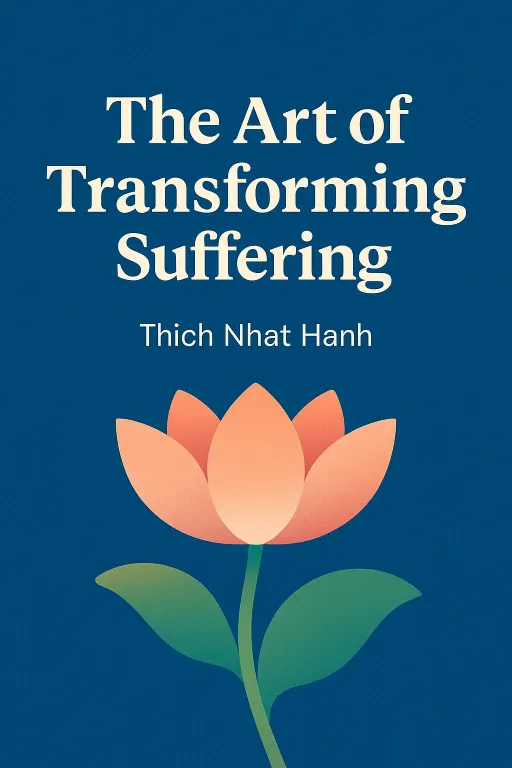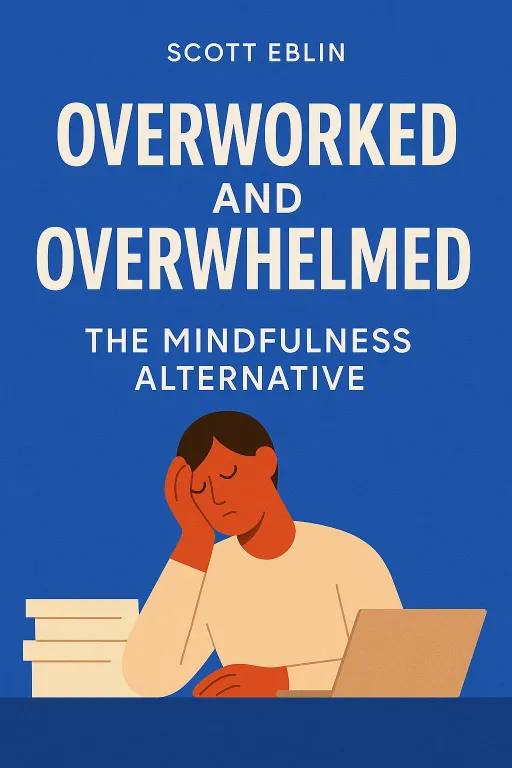
The Art of Doing Less
14 minThe Mindfulness Alternative
Golden Hook & Introduction
SECTION
Laura: A study found that the typical smartphone-carrying professional interacts with work for 72 hours a week. That’s 43% of your entire life, awake or asleep. Sophia: Whoa. That’s not a work week, that’s a hostile takeover of your existence. And let me guess, the solution is another complicated productivity app or a color-coded calendar system that just adds to the stress? Laura: That’s the trap, isn't it? But the shocking part is, the book we're discussing today argues that the solution isn't better time management—it's actually learning to do less. Sophia: Okay, now you have my full, undivided attention. Doing less to achieve more? That sounds like a beautiful, beautiful lie I want to believe. Laura: It’s the core dilemma tackled in Overworked and Overwhelmed: The Mindfulness Alternative by Scott Eblin. And it’s a book that has been widely acclaimed for offering a truly practical path out of the burnout cycle. Sophia: And Eblin isn't just some productivity guru, right? What's fascinating is that his whole perspective was transformed by a personal health crisis. Laura: Exactly. He was a high-flying executive coach, working with Fortune 500 companies, and then in 2009, he was diagnosed with multiple sclerosis. That event forced him to completely redefine what 'peak performance' and 'showing up at your best' actually mean. It gives his advice this incredible, hard-won authenticity. Sophia: That changes everything. This isn't theory from a mountaintop; it’s a strategy forged in a real-life fire. It makes you lean in and listen a lot closer.
The Modern Epidemic: Why We're All 'Overworked and Overwhelmed'
SECTION
Laura: It really does. And he starts by validating that feeling we all have. He tells this story about a consulting partner named John, and it is the perfect portrait of modern professional life. Sophia: Oh, I’m ready. Hit me with it. Laura: John’s on a business trip in Los Angeles. His day starts at 6 AM. By 7:30 AM, he’s driving through LA traffic while on a conference call with clients in D.C. and Denmark. Sophia: Of course he is. The car is just a mobile office now. Laura: He spends the entire day in a high-stakes meeting. It ends at 4 PM, and he immediately has to drive a colleague to the airport. On the way back, stuck on the freeway, he gets pulled into an emergency conference call to review a spreadsheet. He finally gets to his hotel at 6:30 PM, grabs a quick dinner, answers emails, and preps for the next day until he collapses into bed at 11 PM. A 17-hour workday. Sophia: That's not a workday, that's a survival mission. And the saddest part is, it sounds completely normal. Is this just an extreme case, or is this the new normal Eblin is talking about? Laura: He argues it is the new normal. He points to two major forces. First, the corporate restructuring after the 2008 recession created a "do more with less" culture that never went away. Companies realized they could run leaner, which just meant more work for everyone left. Sophia: And the second force has to be the smartphone. The little tyrant in our pockets. Laura: Precisely. He cites research showing that constant connectivity has blurred all boundaries. We’re working harder, but not smarter. And this has a real, physical effect on our brains and bodies. We're living in a state of chronic 'fight or flight.' Sophia: I’ve heard that term, but what does it actually do to us? Laura: Well, in the short term, the fight or flight response is a lifesaver. It floods you with adrenaline and cortisol to help you escape a predator. But Eblin explains that when your inbox triggers the same response as a saber-toothed tiger, day after day, it becomes toxic. It literally shrinks the prefrontal cortex—the part of your brain responsible for good judgment and decision-making. Sophia: So our jobs are making us demonstrably worse at our jobs. That’s a brilliant, self-defeating loop. Laura: It is. And it has real financial costs. He mentions a study by the insurer Aetna, which found that the most stressed-out employees had annual medical expenses that were $2,000 higher than average. Sophia: Wow. So companies are literally paying a premium for burning out their employees. But you hear about these 'corporate warriors,' people who seem to thrive on this pace. Is that a myth? Laura: Eblin suggests it's an unsustainable one. He tells a story about being at a leadership program on a Sunday night. The room is full of high-potential leaders, all talking about how they're drowning. They feel they have to answer emails at 2:30 in the morning to prove their commitment. Sophia: "The first time you answer an email at 2:30 in the morning, they know they've got you." I think I read that quote in the book. It's chillingly accurate. Laura: Exactly. But then one woman in the room speaks up. She says she leaves work at a reasonable hour, doesn't answer emails after dinner, and sets clear boundaries. And the punchline? She was one of the highest-performing leaders in the program. She was proof that there is an alternative. Sophia: An alternative. Okay, so what is this 'mindfulness alternative'? It sounds a bit vague. Is it just about meditating for an hour a day? Because I don't think that consulting partner John has time for that.
The Mindfulness Alternative: Awareness + Intention
SECTION
Laura: That's the most common misconception, and Eblin tackles it head-on. He says mindfulness isn't about clearing your mind; it's about being able to think clearly. He gives a beautifully simple and practical definition: Mindfulness is Awareness plus Intention. Sophia: Awareness plus Intention. Okay, that's more concrete. It sounds less like a spiritual practice and more like a strategic one. Laura: It is. And the best example he gives has nothing to do with a yoga mat. It's about Admiral Thad Allen, the Coast Guard leader who was sent to take over the disastrous government response to Hurricane Katrina. Sophia: I remember that. It was absolute chaos. Laura: Complete chaos. The city was flooded, communication was down, government agencies were pointing fingers at each other. People were dying. Admiral Allen arrives, and what's the first thing he does? He gets in a helicopter and flies over the entire city. He just looks. That’s Awareness. He needed to see the full scope of the problem for himself, not through filtered reports. Sophia: He was getting a clear picture of reality, without the noise. Laura: Exactly. And after he saw the devastation, he held a press conference. He didn't make a hundred promises. He set a few, clear, powerful intentions. He said, "I'm here to establish a clear chain of command and be transparent with the public." He created a single point of focus amidst the chaos. That was his Intention. Sophia: Wow. So mindfulness can be a crisis management tool. That's a world away from what I pictured. He was being mindful in the middle of a hurricane zone. Laura: That's the whole point. It's a tool for high-stakes environments. And Eblin argues we can all do what Admiral Allen did, just on a personal scale. That's where he introduces his framework, the "Life GPS." Sophia: A GPS for your life. I like the sound of that. Is it complicated? Laura: Not at all. It’s built around three simple, powerful questions. First: "How are you when you're at your best?" This is about identifying your peak performance characteristics. Are you calm, focused, creative, humorous? Sophia: Okay, so that’s the destination you’re plugging into the GPS. Your best self. Laura: Precisely. The second question is: "What are the routines that would enable you to show up at your best?" This is the route. What daily actions—physical, mental, relational—get you to that peak state? Sophia: And the third question? Laura: "What difference would showing up at your best make in your three big arenas of life: home, work, and in your community?" This is the 'why.' It connects your daily actions to a larger purpose. It’s your personal version of Admiral Allen's mission. Sophia: Awareness, Intention, and a clear map to get there. It’s so logical. It takes this abstract idea of 'living mindfully' and turns it into an actionable plan. Laura: And that second question of the Life GPS—"What are the routines that get you there?"—is really the engine of the whole book. It's where the transformation actually happens.
The Power of Routines: Your Operating System for a Mindful Life
SECTION
Sophia: Routines. It’s funny, the word 'routine' can sound so boring, so monotonous. But it sounds like Eblin sees it as the key to an exciting life. Laura: He sees it as the key to freedom. He quotes Aristotle: "We are what we repeatedly do. Excellence, then, is not an act but a habit." Routines are the habits that build excellence. And he tells this wonderful story about a woman named Elaine in one of his leadership programs. Sophia: Tell me about Elaine. Laura: Elaine was a classic overworked professional. Tense, stressed, overweight. During the Life GPS exercise, she asked herself, "When was I at my best?" And she realized it was in high school and college, when she was a competitive swimmer. The water was her happy place. Sophia: Oh, I know that feeling. A time in your life when you just felt… right. Laura: So she decided to bring it back. But her schedule was packed. How could she possibly find time to swim? She made a radical choice. She decided to quit checking email for the first hour and a half of every morning. Sophia: That is a terrifying thought for most professionals. It feels like you're abandoning your post. Laura: It does! But she went to the pool instead. And the results were staggering. She became leaner, more energetic, more focused. And she discovered that most of the emails she'd been frantically answering didn't need an immediate response. By the time she got to them, many had resolved themselves. Her productivity actually went up. Sophia: That’s incredible. A single routine had this massive ripple effect across her entire life. But what if your routine isn't something grand like swimming? What about the small stuff? Laura: The small stuff is just as powerful, maybe even more so. He tells another story about a woman named Patricia. She felt disconnected from her family in the evenings because she was always tethered to her smartphone. Her routine was ridiculously simple. Sophia: I’m listening. I need this one. Laura: When she got home from work, she would walk to the laundry room and place her smartphone on top of the washing machine. And she would leave it there until her kids were in bed. Sophia: Putting your phone on the laundry machine! That's it? That's the secret? Laura: That was it. And that one tiny action gave her two to three hours of completely undivided attention with her family every single night. It transformed their relationships. It’s a perfect example of one of Eblin’s principles: choose routines that are easy to do and make a big difference. Sophia: It connects back to his own story, doesn't it? The idea of "the reps matter." Laura: It's central to his recovery. After his MS diagnosis, he could barely walk. Running, which he loved, was out of the question. He started yoga, and at first, it was a struggle. But he just kept showing up. Day after day. The reps. And over time, those small, consistent actions rebuilt his strength, his focus, and his perspective. Sophia: It’s so hopeful. It means you don’t need a massive life overhaul. You just need to find your version of putting the phone on the washing machine. For someone listening who feels totally overwhelmed right now, what's the one routine they should start with? Laura: Eblin would point to the "Killer App" of mental routines: mindful breathing. It’s free, it’s always with you, and it’s the fastest way to hit the reset button on your nervous system. He offers a simple technique called STOP. Sophia: STOP? Laura: It’s an acronym. When you feel that wave of overwhelm hit, you just: Stop. Whatever you’re doing, just pause. Take a few deep breaths. This physically activates the 'rest and digest' part of your nervous system. Observe. Notice what’s going on around you and inside you without judgment. And then, Proceed. It’s a 30-second pattern interrupt that can change the entire trajectory of your hour, or even your day.
Synthesis & Takeaways
SECTION
Sophia: It’s such a clear path when you lay it all out. We start by recognizing that the system is designed to overwhelm us, so we can stop blaming ourselves. Then, we redefine mindfulness not as some vague escape, but as a practical tool for intentional action in the real world. And finally, we build tiny, powerful routines to make that intention a daily reality. Laura: Exactly. And the most profound message, especially coming from Eblin's personal journey with MS, is that you can't always control the external chaos. You can't control a market crash, a demanding client, or a chronic illness. But you can control your response. Sophia: That famous Viktor Frankl quote comes to mind: "Between stimulus and response there is a space. In that space is our power to choose our response." Laura: That's the heart of the entire book. That space is mindfulness. Eblin’s work shows us that the ultimate goal isn't about finding more time in our day. It’s about reclaiming our attention and choosing, moment by moment, where we place it. That’s where our freedom lies. Sophia: It’s a powerful shift. From being a victim of our schedule to being the architect of our attention. Laura: So our challenge to you this week is to try the STOP technique just once a day. The next time you feel that wave of overwhelm—the endless emails, the back-to-back meetings—just pause. Stop. Take one deep breath. Observe what's happening. And then proceed. It might only take 30 seconds. Sophia: We'd love to hear how it feels. Does it make a difference? Does it give you back that little bit of space? Find us and share your stories. We read every single one. Laura: This is Aibrary, signing off.
